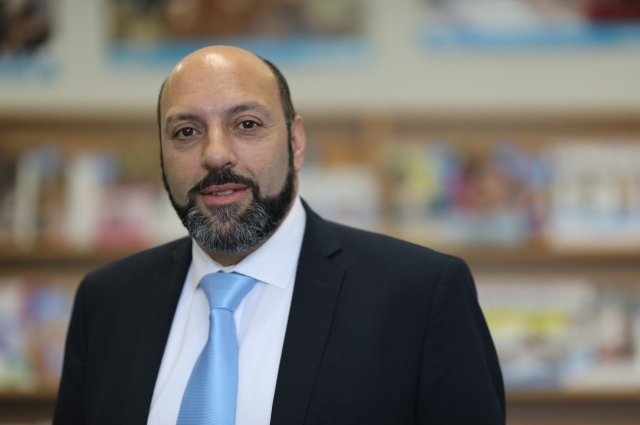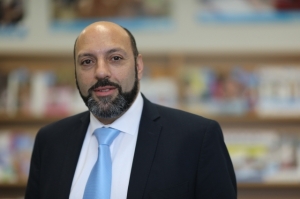GT Live Interview with UNICEF-Georgia Representative, Ghassan Khalil
To find out how COVID-19 has affected Georgia’s children and education system, and the work being done to support those affected by the pandemic, GEORGIA TODAY’s Editor-in-Chief Katie Ruth Davies, as part of the GT LIVE INTERVIEWS series, spoke to UNICEF Georgia Representative Ghassan Khalil.
What were UNICEF Georgia’s first steps once COVID-19 started to spread? What were the biggest concerns at this point?
COVID-19 took everyone by surprise. No-one was prepared for this pandemic, and UNICEF Georgia was no exception. But we started adapting quickly, with a wonderful team that I would like to thank now for their efforts. We started immediately prioritizing and re-programming what we’d been doing, what we call the regular program. We had very close contact with our counterparts and with their excellent interaction, and building on a social capital and professional capital with the counterparts and donors, we were quite fast in re-programming and being able to start responding very quickly.
So far, more than 800 families have been supported directly by our office, seeing us able to provide practical support of dry food and essential aid to minorities and the most vulnerable children and families in remote areas and local communities. I would also like to use this opportunity to congratulate the Government of Georgia on its great efforts made and concrete results achieved. Georgia is seen now as the country with one of the best practices in fighting COVID-19, and we are proud that UNICEF has been a part of the truly wonderful partnerships we have with our counterparts, starting from the NCDC, all the ministries and departments, and also donors who trust UNCIEF and continue to support us to respond appropriately to his pandemic.
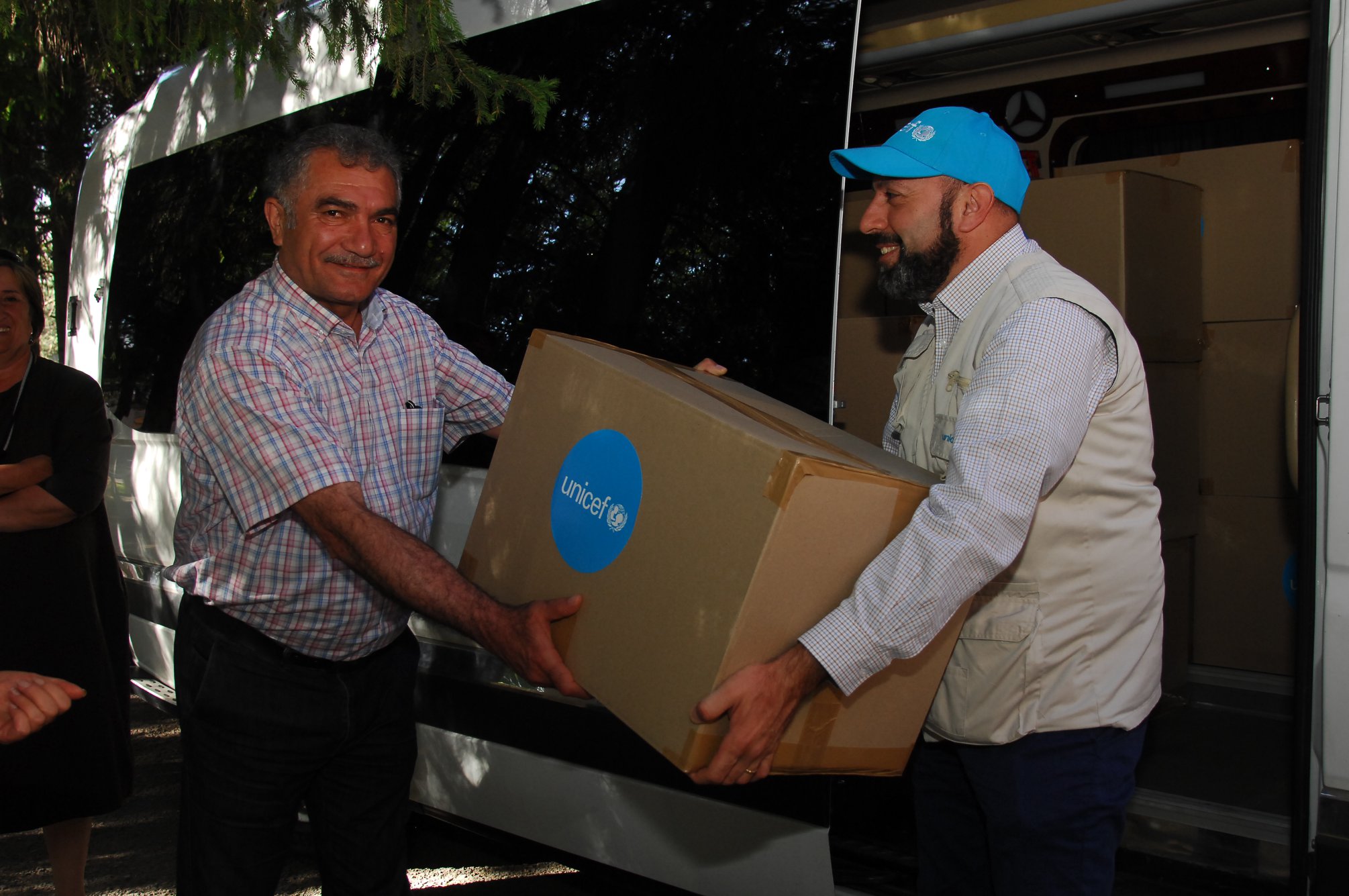
Tell us about the UNICEF-produced Multi-Scenario Interactive Projection Tool and how it was applied in Georgia.
This is the product of a talented team which we are implementing on lead exposure in the blood, which is a problem in many countries. And the Georgian government was very eager to search for solutions and sources of the pathways of lead. So, when the pandemic started, a talented team started working on the development of a projection tool. This tool is very useful for the government to understand and predict the needs which are essential. The National Center for Disease Control has been using this tool and we are glad that in Armenia also, they started using the same tool.
How has UNICEF Georgia helped parents? We heard about the ’15-day Challenge’ and TV programs on Georgian Public Broadcaster.
The ‘15-day Challenge’ is one of the practical support areas that UNICEF has provided. It was planned to last 15 days, and then, based on its success, was extended by another 15 days. It is very simple, but at the same time, provides parents with very concrete and practical advice on how to entertain their children when “locked-down” at home, and also how to keep their learning ongoing. This is one of the most valuable experiences that UNICEF has been able to provide. But also, with the Georgian Public Broadcaster, there was a program developed for families who have children with disabilities. It was yet another success, the parents were able to receive very practical advice on how to manage the needs, and educational needs, of their children.
Now, social media allows us to get into every home, more so than TV, and UNICEF took advantage of the digital applications and facilities to make sure that we reach families and provide them with practical advice.
How has UNICEF been helping young people to cope during the pandemic?
Young people have perhaps suffered most from this pandemic. Due to school closures, cancelation of events, they’ve been missing out the most important moments of their lives. UNICEF initiated two main projects for young people. The first was socio-social support, a hotline providing advice for them and their parents. At the same time, with the Parliament, the Human Rights and Civil Integration Committee, and the Mission Head of the State Care Agency, we designed, agreed and signed, and it will be launched very soon, a service for young people who become addicted to gambling. This is an extremely important and crucial service for young children. This will be a part of the 111 hotline, and when people call, they will be offered specialized advice, socio-social support and consulting when needed. The UNICEF-supported 111 hotline has helped a lot of families who reached out for social or other kinds of assistance, who have been affected by the pandemic.
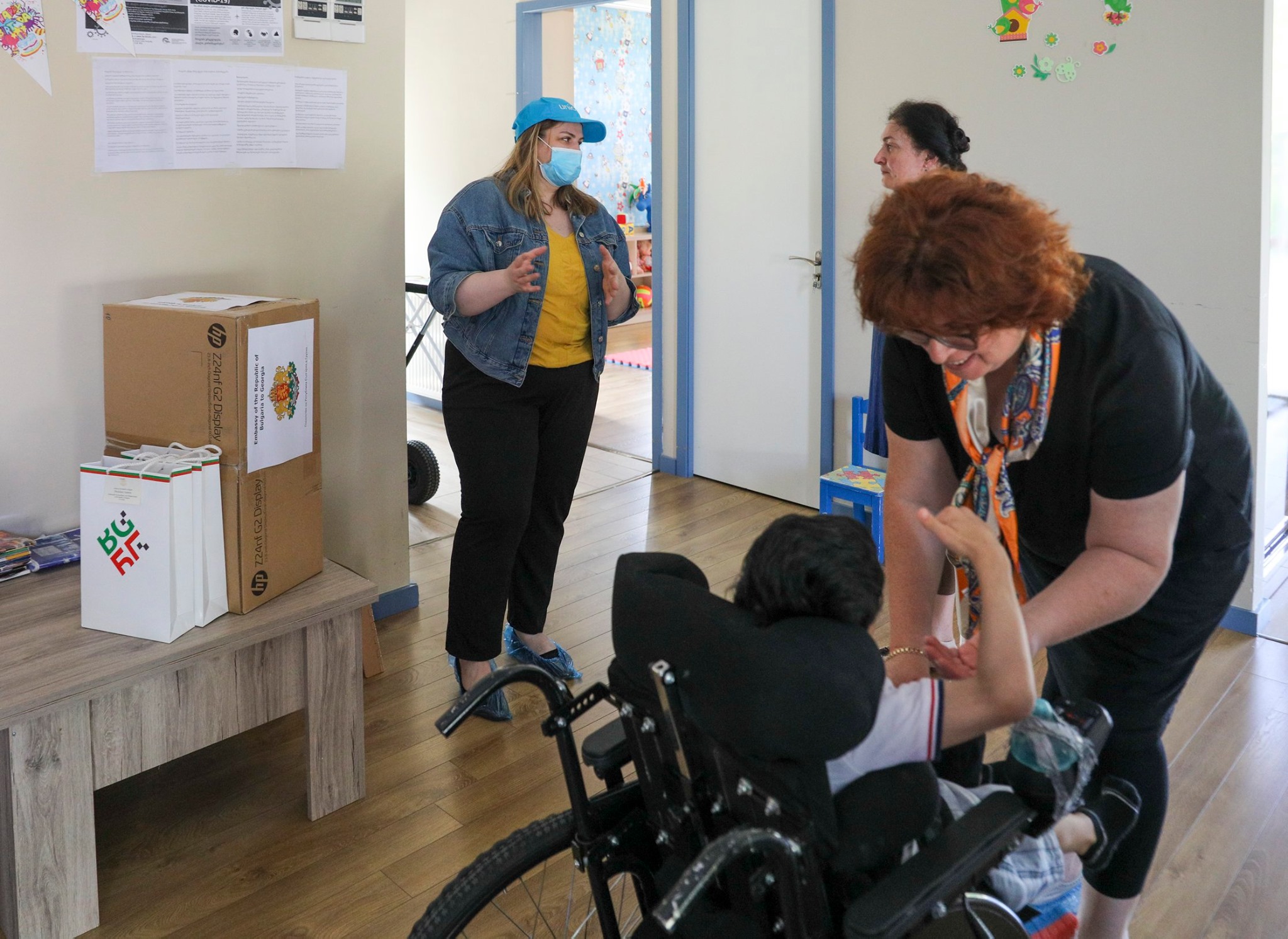
Tell us more about your advocacy videos and online consultations.
When the pandemic started, one of the programs we initiated was remote consultations for pregnant women. During the pandemic, it was very risky for pregnant women to go to a clinic, so UNICEF implemented a program with the Ministry of Health to offer remote consultations. We plan to reach all pregnant women in the country with this service. The health program has also been helping with the development of new protocols for immunization, for breast feeding, etc. Medical supplies and health products have been also procured by UNICEF and distributed to hospitals and clinics, especially those which have been assigned for COVID-19 patients. One specific interest of UNICEF which has been ongoing for a long time, and we are working on during the pandemic, is to empower the capabilities of rural healthcare centers. This is extremely important, so empowering primary healthcare centers is a part of our COVID-19 response. Online consultations, remote interactions, even distance learning about health practices will continue between families and doctors.
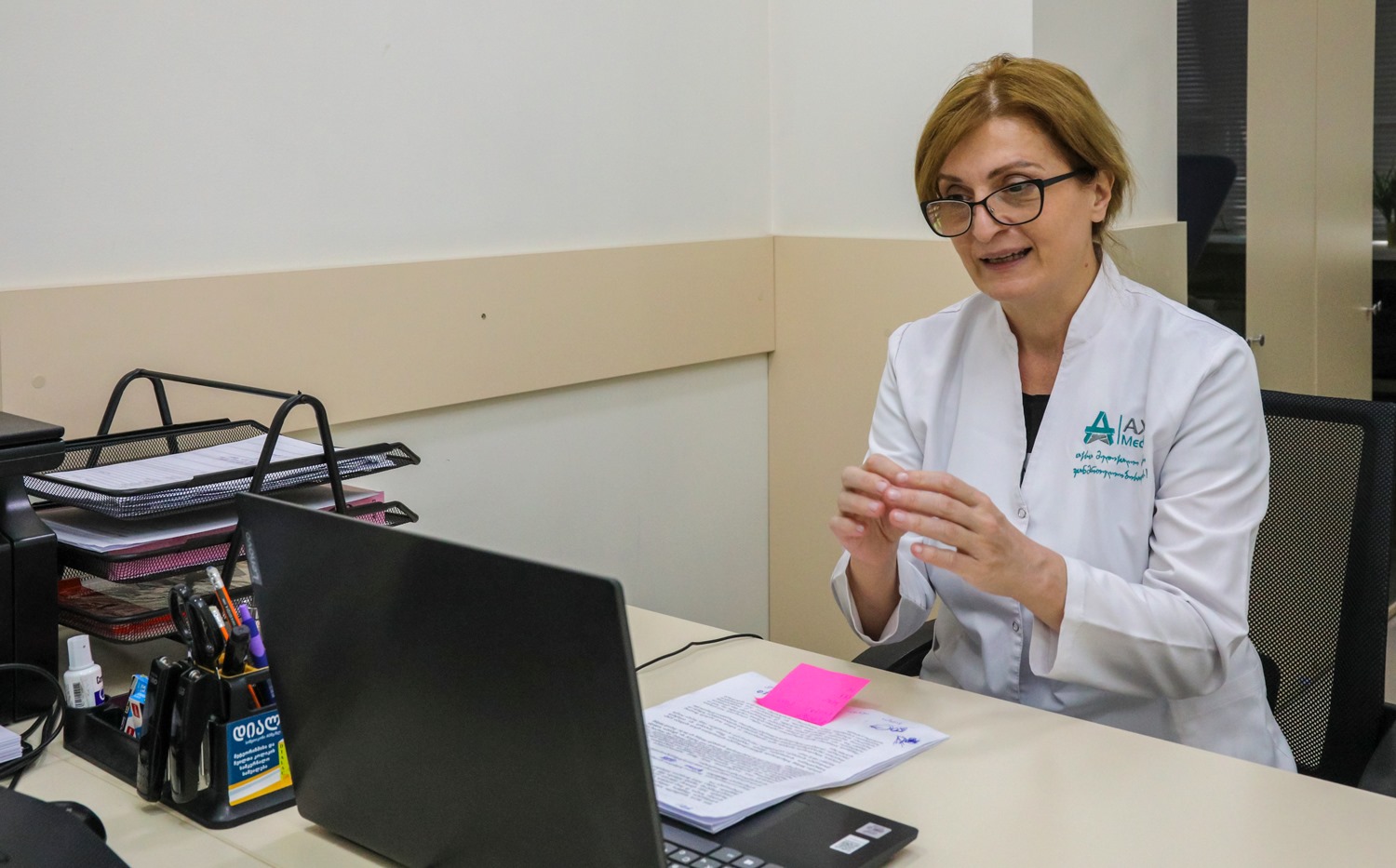
Can you tell us about your view on Georgia’s education system? What is UNICEF’s position towards reopening the schools?
UNICEF is very clear about the re-opening of schools. Our position is that children need the school system because they need to interact with other classmates, with teachers, and this is very good for their socio-sociological well-being. It is important to mention that there is no evidence to connect disease transmission and whether schools are open or closed, but there are overwhelming negative impacts that the closure of schools will have on children. UNICEF supports children going back to school safely. There are very concrete and clear guidelines to help the government re-open schools safely. Physical distancing, appropriate water and sanitary facilities, essential hygiene supplies.
And we all have to train ourselves. Children need to be trained to keep social distance from their classmates. Not only keeping distance: even adults need to train themselves to regularly wash their hands, to use sanitizers and face masks when needed. All members of society will have to adapt and get used to the new practices.
In Georgia, 165,000 preschool children and 592,000 school age children have been kept at home during the pandemic. And despite great efforts from the Ministry of Education, there are children who miss school completely. Some of these children either belong to minority groups or live in high mountainous areas, when there are no schools, so they need to go to towns to learn there. UNICEF always advocates to keep families together. Distance learning is an opportunity we have to take advantage of, to make sure that every child gets a chance to access quality education. This is one of the things I know that the Ministry of Education is working on. We have to think about the children who do not have access to the internet and computers, 15,400 of them in Georgia. The government is definitely thinking about them. And even if 100% of children go back to school, which we hope, we should not go back to learning practices we have had in the last years. We should learn from this crisis, and we should keep the good things which we have learned and practiced.
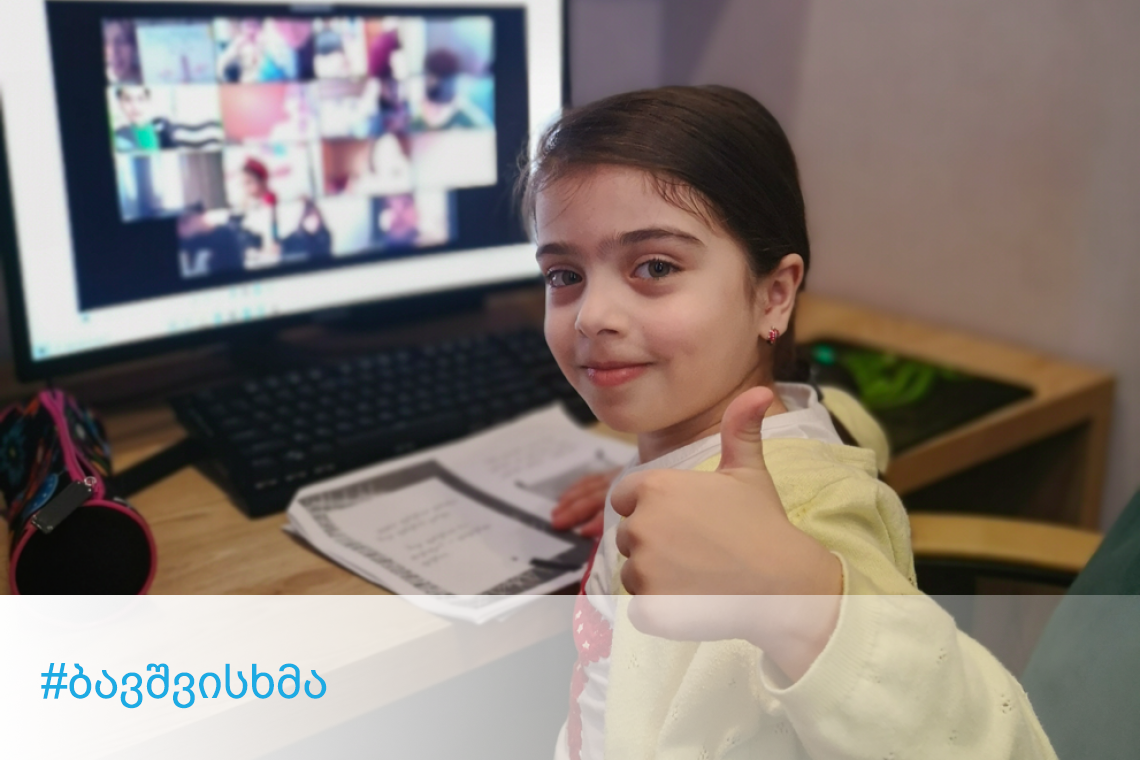
Which challenges do you see ahead, specifically for Georgia?
I think for Georgia and the whole world, the main challenge is now understanding what will happen next. We are working very closely with WHO, with the UN agencies, as finding out how the virus will evolve is extremely important. Having said this, learning adaptability has to be very high. To survive properly and to be able to provide quality services for children, young people, and families, all systems, be they government or from civil society, have to be highly adaptive to the changes. This is the first challenge. We do not know exactly how the situation will look in a few months from now but UNICEF, knows that whatever the situation is, we’ve been working towards upholding the best practices for children.
Speaking about the interests of children, I would like to recall a very important upcoming milestone for Georgia, which is September 1, the date of the entry into force the historic Code on the Rights of the Child in Georgia. UNICEF worked very closely with Parliament’s Human Rights Committee to develop it. We congratulated Parliament on its adoption on 20 September 2019. The philosophy of this code is the best interests of a child, which means that every day and every minute, we have to re-evaluate every situation and make sure that we are working for and achieving the best interests of our children.
Unfortunately, there are issues related to child poverty in Georgia. We see the child poverty rate is increasing worldwide due to COVID-19. Georgia has put a lot of efforts into reducing child poverty. Now, there should be more efforts made in order to prevent child poverty from increasing. There is a target social assistance program in Georgia, and it has to become stronger now. In 2019, the government responded positively to UNICEF recommendations, and increased child benefits in the target social assistance program. Now, UNICEF is supporting the evaluation of this program. This evaluation will show the needs of this program to cover more profiles.
Further, UNICEF recently supported the government in conducting a short-response assessment to understand how people have been affected by COVID-19 and what policies are necessary to support them. All these assessments will provide the government with the ability to make informed decisions relevant to the situation, to help children and the most vulnerable families in Georgia.
Interview by Katie Ruth Davies
Transcribed by Ana Dumbadze
Photos courtesy of UNICEF Georgia
